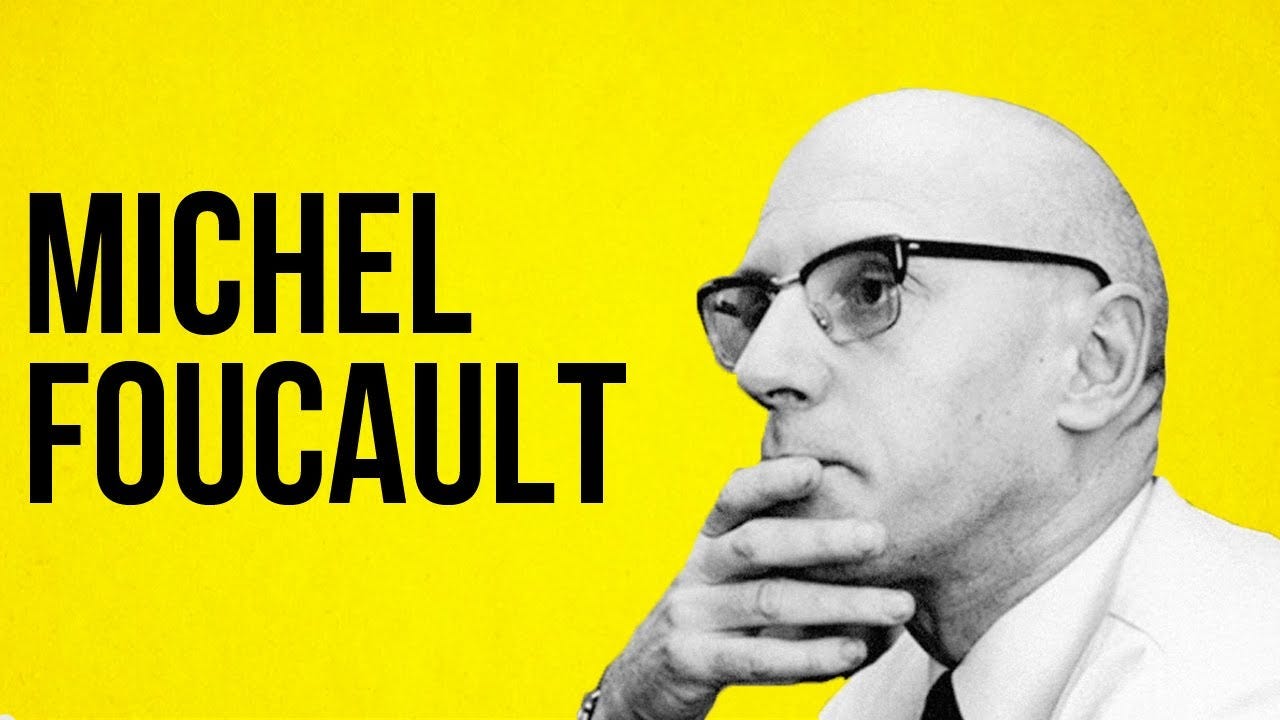God in Mind: The Psychology of Religion
Part Five: When Being Negative is Good (Exploring the work of a living woman heretic)
Being negative is bad. Right? By definition, “negative” is something unpleasant and unwelcome. Synonyms of “negative” include: pessimistic, gloomy, fatalistic, defeatist, bleak and morose. When was the last time you said to someone, “Have a negative day!” or “I just wish you could be more negative.” I doubt your New Year’s Resolution was to add more negativity to your life, and you might not be the first to sign up for a seminar titled, “How to Be Negative”.
Today I want to introduce you to a philosopher and psychoanalyst who is actually leading a course that is named exactly that, “How to Be Negative”. This person is known for “turning a negative into a positive”… literally. This individual is a pioneering figure in the field of “negative psychoanalysis”.
There are at least three reasons why you might not have heard of this philosopher and psychoanalyst:
This person is still living.
Many of the notable philosophers and psychologists who appear in public intellectual discussion are no longer living. The three psychologists I have covered so far in this series - Sigmund Freud, Carl Jung and Jacques Lacan - are not alive. Many of the philosophers I have written about in articles aren’t living either, including Friedrich Nietzsche, Baruch Spinoza, Bertrand Russell, Georg Hegel, Søren Kierkegaard, Jean-Paul Sartre, Albert Camus, etc. It is often the case that the brilliance of one’s contribution is only fully recognized and appreciated posthumously. Today’s piece is focused on someone who is very much alive.
This person is a woman.
On more than one occasion I have mentioned how women are often curiously missing as significant figures in the fields of philosophy and psychology. I discuss this in my article on Simone de Beauvoir. Hopefully this has changed, but it’s too often the case that women who are public intellectuals have to work twice as hard and get half the credit.
This person is a heretic.
Though I myself am considered a “heretic” by many Christians, I am using the term here in its broader definition - “a person holding an opinion at odds with what is generally accepted.” The person we are discussing today would be considered a “heretic” in the field of conventional psychology as well as mainstream self-help and therapeutic culture. She is unorthodox, eccentric, original, and avant-garde. Her latest project is a year-long “demotivational course”, named “How to Be Negative.”
Today we are going to be exploring the Ukrainian-born philosopher and negative psychoanalyst, Julie Reshe.
Who Is Julie Reshe?
Julie Reshe is a Ukrainian-born philosopher, a practicing negative psychoanalyst, and a public intellectual. She is currently a visiting professor at University College Cork and University College Dublin. She is also a Director of the Institute of Psychoanalysis at the Global Centre for Advanced Studies.
Julie holds an M.A. degree in Philosophy from the Taras Shevchenko National University of Kyiv. She studied cultural theory at National University of Kiev-Mohyla Academy. She received her Ph.D. in Philosophy and Psychoanalysis in Slovenia, where she studied under the supervision of Alenka Zupančič in Scientific Research Centre of the Slovenian Academy of Sciences and Arts.
The best way to familiarize yourself with Julie Reshe’s work is through exploring her website. Julie has contributed many articles to professional journals as well as publishing academic books related to “negative psychoanalysis”, most notably, Negative Psychoanalysis for the Living Dead. In 2024, this book was recognized as one of the 20 best books in the field of psychoanalysis. She also editor of the book, Death and Love: Psychoanalytic and Philosophical Perspectives.
If I were to recommend a few resources to familiarize yourself with the work of Julie Reshe in her own words, I would suggest:
Read this article by Julie Reshe, titled: Depressive Realism
Watch this interview between
and Julie ResheWatch this interview of Julie Reshe with Leon Brenner
Listen to this podcast between Julie Reshe and
Watch this video by Julie Reshe, In Search of the Negative
Read Julie Reshe’s article: The Tyranny of Happiness: Why Being Positive Leads to Depression (use Google translate to change from Russian to English)
I strongly encourage you to spend some time investigating the work of Julie Reshe. The above resources are a reasonable way to start. As mentioned, begin with her website.
How I discovered Julie Reshe
What happened is…
My religious background and training indoctrinated me into a mistrust and indifference toward psychology and the mental health field. After all, what inner struggles should a person have if they tend to their personal relationship with God, study the Bible and devote themselves to the proper spiritual disciplines? Pastoral counseling was sufficient to address anything else. So I thought.
Though I won’t recount the story here, I recently published an article titled: Confessions of an Ex-Megapastor Behind the Curtain of Organized Church (When Church is bad for your mental health). One thing I share in that piece is how my lack of trust and training in psychology and mental health was disastrous for myself and the people in the churches that I led.
In my post-religion life I found myself increasingly working with people who were psychologically and spiritually damaged through their involvement in toxic religion. This was 25 years ago before religious deconstruction and Religious Trauma Syndrome was a thing. I recently estimated that over those years I have invested about 40,000 hours in work and research in areas such as religious trauma and existential health. My training to become a Certified Spiritual Director (CSD) had an emphasis in Jungian psychology. I have published articles on these subject, including:
Undoing Religious Pathology: How To Break Free From Harmful Religion
Toxic Religitivity: 5 Religious Sayings That Are Bad For Your Mental Health
On the other hand, a person could feasibly become too trusting of psychology and the mental health field and follow it with blind faith in the same way some people do religion. In this series I have covered well-known psychologists and psychiatrists such as Freud, Jung and Lacan, but it’s not like these individuals are infallible and all their concepts and theories are the gospel truth.
Given the religion-leavers I have worked with over the years - especially those taught to be suspicious of secular psychology and the mental health field - the last thing I want to do is instill further mistrust. But the central point here is the importance of learning and applying critical thinking to everything. Whether it’s religion, politics, economics, healthcare industry, therapeutic or self-help culture, etc., we can’t unthinkingly hand over the keys to our lives.
And Then There Was Foucault
For me personally, I never questioned psychology or the mental health field until ten years ago when exploring French historian, philosopher, and cultural critic, Michel Foucault, who died in 1984. I published an article about Foucault in my series, “Philosophers You Have Never Heard Of”.
Foucault questioned the assumption and mythology of “progress”. For example, with all we know in the fields of psychology and therapeutic culture, you’d expect that humankind’s overall mental health would be getting better. Right? And yet, metal health statistics don’t seem to support this claim.
Foucault's first major published work was, Madness and Civilization: A History of Insanity in the Age of Reason. Madness and Civilization is an examination of the evolving meaning of “madness” in European culture, law, politics, philosophy and medicine from the Middle Ages to the end of the eighteenth century. His deconstruction of historical developments relating to the mental health field is one of Foucault’s most fascinating explorations of the relationship between knowledge and power.
How Positive is Positive Psychology?
I’ve written about the dangers and pitfalls of the self-help and pop-spirituality culture in a three-part series, titled, Exposing Pseudo-Spirituality.
There’s a lot of negativity in toxic religion. Think of the typical religious lies people often believe:
I am inherently bad.
I can’t trust myself.
My heart is wicked.
I deserve punishment.
I don’t measure up.
I am powerless.
I need forgiveness for who I am.
I am worthless on my own.
I can never be good enough.
I need saved from myself.
Working with people coming out of those mindsets, I would typically steer them toward what I considered to be more positive and empowering frameworks. For example, “positive psychology”.
The ideas and theories of “positive psychology, often associated with prominent psychologists such as Abraham Maslow and Carl Rogers, took on new life in 1998 when Martin Seligman chose it as the theme for his term as president of the American Psychological Association.
Keep reading with a 7-day free trial
Subscribe to Deconstructionology with Jim Palmer to keep reading this post and get 7 days of free access to the full post archives.










